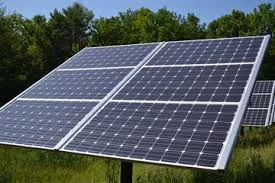Innovative Solutions for Sustainable Off-Grid Energy Independence and Power Generation
Off-Grid Power Solutions Sustainable Energy for a Self-Sufficient Future
As the world increasingly shifts its attention towards sustainability and renewable energy sources, off-grid power solutions are gaining prominence. These solutions provide various habitats, from rural communities to recreational dwellings, with a means of generating electricity without relying on conventional utility grids. Leveraging innovations in technology, off-grid systems enable individuals and communities to harness natural resources such as solar, wind, and hydropower, ensuring energy independence and environmental stewardship.
Understanding Off-Grid Power Solutions
At its core, an off-grid power solution refers to any energy system that operates independently of the traditional electricity grid. Such systems typically rely on a combination of renewable energy sources and storage technologies. Solar panels, wind turbines, micro-hydroelectric generators, and biomass systems are common components of off-grid electricity setups. These systems can be tailored to align with the specific energy needs and environmental conditions of a particular location, making them versatile and adaptable.
One of the most significant advantages of off-grid power solutions is their ability to provide electricity in remote areas where extending the grid is not feasible or economically practical. In regions plagued by unreliable electricity supply, off-grid systems can offer a reliable alternative, empowering communities and improving their quality of life. For instance, the deployment of solar panels in rural villages has facilitated access to electricity for lighting, communication, and powering appliances, thus enhancing educational and economic opportunities.
Technological Innovations Driving Off-Grid Solutions
Recent advancements in technology have greatly enhanced the viability and efficiency of off-grid systems. For solar power solutions, improvements in photovoltaic (PV) cell technology have led to higher energy conversion rates, allowing users to generate more electricity from less sunlight. Similarly, the development of more efficient wind turbines has expanded their suitability for diverse climates and terrains, making wind energy a viable off-grid option in various regions.
Battery storage technology is another critical component of off-grid solutions. As energy generation from renewable sources can be intermittent, reliable energy storage allows users to store excess energy generated during peak production times for later use. Innovations in lithium-ion and flow battery technologies have driven down costs and improved efficiency, enabling users to store more energy and access it when needed. As a result, users can maintain a consistent power supply, even during periods of low generation.
off grid power solutions

Environmental Benefits of Off-Grid Solutions
The adoption of off-grid power solutions contributes to a reduction in greenhouse gas emissions and reliance on fossil fuels. By harnessing clean energy sources, individuals and communities minimize their carbon footprint and help combat climate change. Furthermore, off-grid systems often promote broader environmental stewardship by encouraging sustainable practices in energy consumption and resource management. For example, off-grid users typically adopt energy-efficient appliances and technologies, which can further reduce energy consumption and waste.
Additionally, off-grid power solutions can have a positive impact on local ecosystems. By utilizing renewable resources that are abundant and locally available, these systems can promote biodiversity while mitigating pollution and habitat destruction associated with conventional energy extraction practices.
Challenges Ahead
Despite their numerous advantages, off-grid power solutions face several challenges. The initial capital cost of installing an off-grid system can be significant, which may deter adoption among some individuals and communities. Moreover, the need for regular maintenance and potential technological obsolescence presents challenges for long-term sustainability.
To overcome these hurdles, it is crucial to promote awareness, provide financial support, and encourage policy frameworks that facilitate investment in off-grid technologies. Government incentives, grants, and community-based financing models can help alleviate initial costs and promote widespread adoption.
Conclusion
Off-grid power solutions represent a promising path towards energy independence, sustainability, and resilience. By harnessing renewable energy sources, these systems provide reliable power to underserved communities while reducing environmental impacts. As technology continues to evolve and costs decrease, the future of off-grid energy solutions looks bright. In a world striving for sustainable practices, empowering individuals and communities with the tools to generate their own energy is not just a necessity but an opportunity for a more self-sufficient and eco-friendly future. Embracing off-grid power solutions is a crucial step towards safeguarding our planet for generations to come.
-
Unlocking Energy Freedom with the Off Grid Solar InverterNewsJun.06,2025
-
Unlock More Solar Power with a High-Efficiency Bifacial Solar PanelNewsJun.06,2025
-
Power Your Future with High-Efficiency Monocrystalline Solar PanelsNewsJun.06,2025
-
Next-Gen Solar Power Starts with Micro Solar InvertersNewsJun.06,2025
-
Harnessing Peak Efficiency with the On Grid Solar InverterNewsJun.06,2025
-
Discover Unmatched Efficiency with the Latest String Solar InverterNewsJun.06,2025







